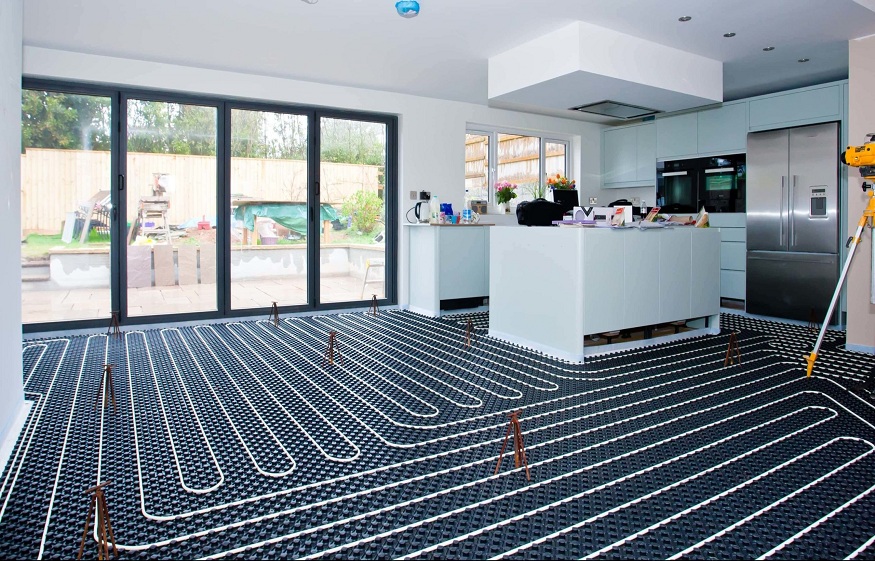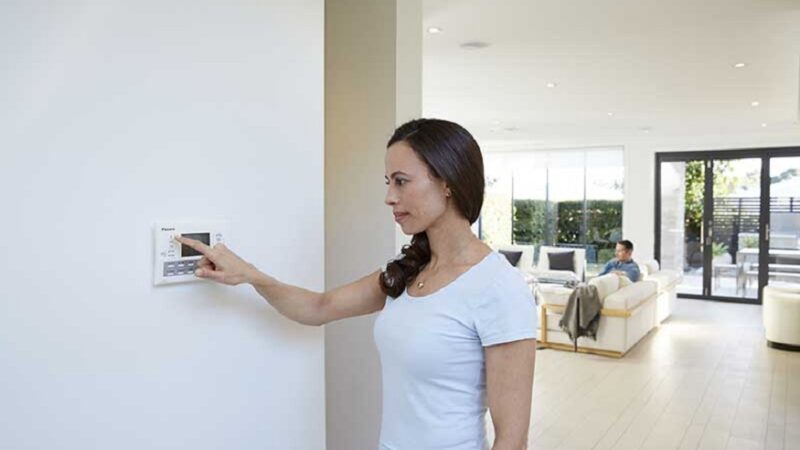Why You Should Consider Underfloor Heating

Imagine a warm, cosy house in winter that takes all the hassle out of heating. Sound too good to be true? It is! This post will cover some of the benefits that an underfloor heating system brings such as no more cold floors and lower energy bills.
What is Underfloor Heating?
Underfloor heating is a type of radiant heating that involves circulating warm water through pipes under the floor. The heat is then radiated upward, warming the room. Underfloor heating is an efficient and comfortable way to heat your home, and it can be used in conjunction with other types of heating, such as forced-air furnaces and radiators.
Why You Should Consider Underfloor Heating
If you’re considering adding underfloor heating to your home, there are a few things you should know. Underfloor heating is an efficient and cost-effective way to heat your home, and can be used in conjunction with other heating sources. Here are a few reasons why you should consider underfloor heating in Exeter :
- Underfloor heating is more efficient than traditional heating methods.
- Underfloor heating can help reduce your energy bills.
- Underfloor heating is easy to install and maintain.
- Underfloor heating is comfortable and evenly distributed throughout your home.
- Underfloor heating is a green and sustainable way to heat your home.
Features of Underfloor heating
Underfloor heating is one of the most efficient and comfortable ways to heat your home. Here are some of the key features that make underfloor heating a great choice:
-Even heat distribution: Underfloor heating evenly distributes heat throughout the room, eliminating hot and cold spots.
-Hypoallergenic: Since there are no forced air currents, underfloor heating is ideal for people with allergies or asthma.
-Lower humidity: Forced air systems can dry out the air, but underfloor heating doesn’t circulate air, so it helps keep humidity levels low.
-Increased comfort: Underfloor heating is a radiant heat source, so it feels more natural and comfortable than other types of heating.
-Lower operating costs: Underfloor heating is very efficient and can save you money on your energy bills.
How Underfloor heating Works
If you’re considering underfloor heating for your home, you might be wondering how it actually works. Underfloor heating is a type of radiant heating, which means it heats objects and surfaces rather than the air. Radiant heat is very efficient because it doesn’t rely on convection, the process of hot air rising and cold air sinking that often leads to drafts and uneven temperatures in a room.
Underfloor heating systems can either be wet or dry. Wet systems circulate hot water through pipes in the floor, while dry systems use electric wires to generate heat. Both types of system are effective, but wet systems are generally more expensive to install.
Underfloor heating is controlled by a thermostat, which regulates the temperature of the floor and ensures that the system doesn’t overheat. You can set the thermostat to different temperatures in different rooms, or even have different zones within a single room so that you can have different temperatures in different areas.
Underfloor heating is a great way to keep your home warm and comfortable, and it’s also very efficient. If you’re thinking about installing underfloor heating in your home, talk to a qualified contractor to get more information.
Cost of Underfloor Heating
The cost of underfloor heating can be a major deciding factor when considering this home improvement. While the initial investment may be higher than other heating options, you will save money in the long run with lower energy bills. When budgeting for underfloor heating, be sure to factor in the cost of installation and materials.
Drawbacks of Underfloor Heating
There are a few potential drawbacks to underfloor heating that you should consider before making a final decision. These include:
- Cost: Underfloor heating can be a significant initial investment, especially if you are retrofitting an existing home.
- Installation: Installing underfloor heating can be complex and time-consuming, so it is important to make sure you have a qualified professional do the work.
- Maintenance: Underfloor heating systems require regular maintenance to ensure they are functioning properly and not wasting energy.
- durability: Underfloor heating systems can last for many years, but they are not indestructible. If you have pets or children, you will need to take extra care to protect the system from damage.






